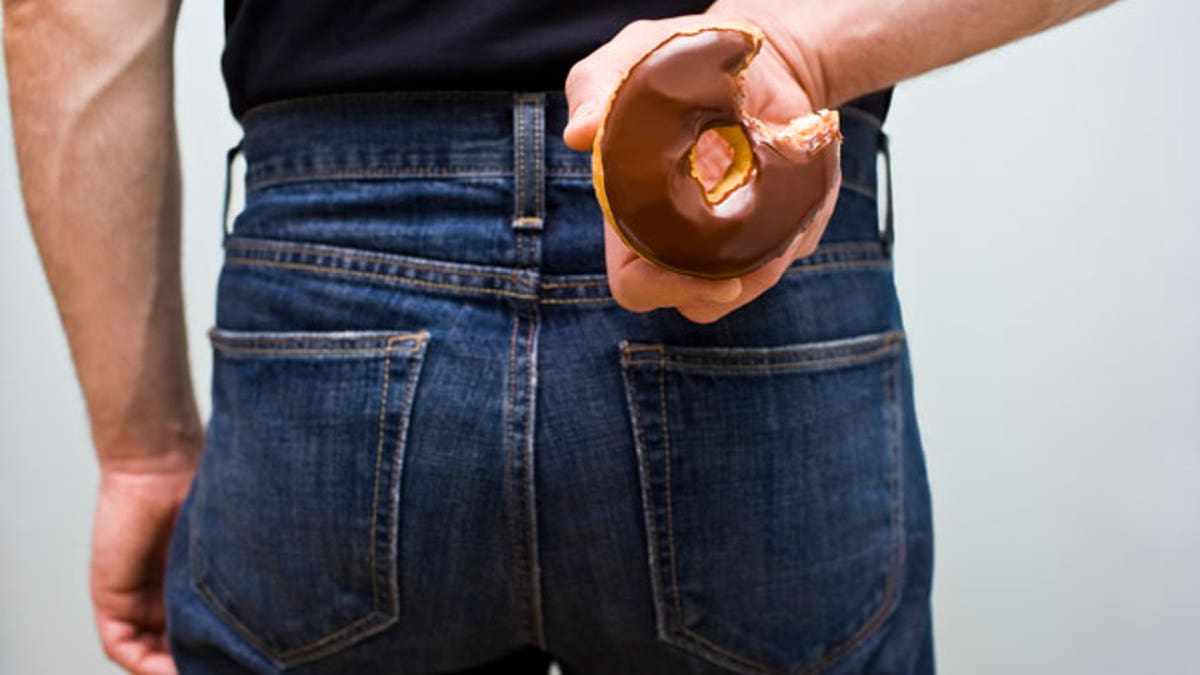
Cheating on your diet is the easiest (and most finger-licking delicious) way to lose weight—and not just because, without it, resolve crumbles like a mouthful of red velvet Oreos.
RELATED: 5 Exercise Machines You Should Never Use at the Gym
Or, better yet, call it a splurge, a treat, refeeding, or anything that doesn't convey the fact that you are doing something wrong by indulging. "When people see eating as black and white that could be dangerous," says Jim White, R.D., owner of Jim White Fitness training studios and a spokesperson for the Academy of Nutrition and Dietetics. Being 100 percent "on" or "off" your diet sets you up for having 1) a pretty unhealthy relationship with food and 2) a metabolism gone haywire.
But so can trying to cut calories Every. Single. Day.
When you constantly restrict your eating, your levels of leptin—a satiety hormone that both keeps you feeling full and helps rev your metabolism—begin to crash, White says. Your metabolism slows. But research published in the International Journal of Obesity and Related Metabolic Disorders shows that temporarily overfeeding (scientific speak for overeating) on carbs increases leptin levels and the number of calories burned in the following 24 hours. It may because leptin is sensitive to glucose metabolism. (FYI, the study suggests that filling up on fat doesn't move your leptin and calorie-burn needles.)
RELATED: 14 Healthiest Snack Foods to Buy
Athletes call these carb-fests refeeding. "Ramping up carb intake through planned meals after workout and increases muscle glycogen, muscle synthesis, and lowers body fat," White says. And, while, your fitness and body-fat-percentage goals probably aren't so stringent that you have to worry over hour-by-hour eating schedules, calorie counts, and precise macronutrient breakdowns (carbs to protein to fat), you can benefit from splurging every now and then.
RELATED: The Only 5 Exercises You'll Ever Need
Follow these tips to make your so-called cheats work for more than your taste buds:
Plan to "Cheat" Once a Week
Your splurges shouldn't be super-regular occurrences, says Pam Peeke, M.D., M.P.H., F.A.C.P., senior science advisor for Elements Behavioral Health and author of The Hunger Fix. If they are, you could end up putting away so many calories away that you counteract all of the healthy eating you've been doing. To keep from turning one cheat into a dozen, White recommends scheduling your splurges for Sunday, or around any special occasions. When people schedule them for Friday or Saturday, they tend to snowball throughout the weekend. Splurge on Sunday and get back into healthy eating on Monday morning.
RELATED: Brad Pitt Is Back and Sexier Than Ever
Make It a Meal, Not a Full Day
Thanks to fat-burning, muscle-building hormones like testosterone, men can afford to splurge on some more calories than can women, Peeke says. But that doesn't mean you should splurge all day long. And sorry to break it to you but alcohol cancels any leptin-mediated boost in metabolism, she says. Guys should aim to have a meal of no more than 1,000 calories, or, 500 more than your dinner usually would be. Translation: Go ahead and have the prime rib, baked potato, and split the dessert with your date, says White.
RELATED: How To Get Rock Hard Abs Faster
Know Your Stomach
Another reason not to go hog-wild: "If your body no longer takes in high volumes of fat or sugar, then one day out of the blue you dump a load of fat and sugar in your body, physiologically your gastrointestinal tract will react," Peeke says. "Your gut enzymes as well as bile have to go into overdrive, as they have been quiescent. This is a hardship on the body and trust me, you'll pay for it with diarrhea, upset stomach, and bloating."
RELATED: Shirtless Nick Jonas Explains How He Got His New Body
Ask Yourself These Questions
Everyone has a food of which they can't stand to only eat one bite, or plate, or bag. Treating yourself with those trigger foods is slippery, and can easily turn into a binge, Peeke says. Before picking your cheat meal, she recommends asking yourself two things: Will I feel out of control if I eat this food? Will I feel shame, blame, and guilt after eating this food? If the answer is yes (and, usually, if the answer is yes to one, it's yes to both), it's not a good option for your end-of-the-week splurge.








































